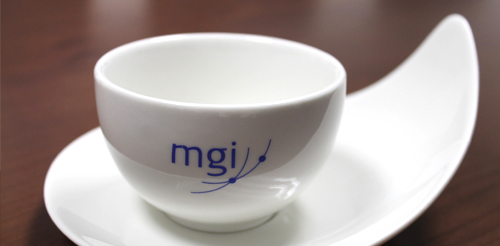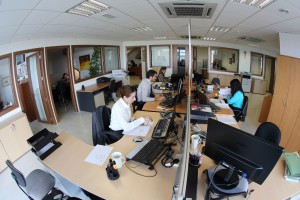In a press conference held on 8th June 2020, the Prime Minister Dr. Robert Abela, Finance Minister Prof. Edward Scicluna and Minister for the Economy, Investment and Small Businesses Mr. Silvio Schembri rolled out a recovery package aimed at regenerating the Maltese economy post COVID-19. Such package follows the lifting of most of the Covid-19 restrictions effected last week. The economic recovery plan is based on three pillars:
- Reducing business costs.
- Stimulating domestic consumption; and
- Directly supporting businesses.
Hereunder is a summary with selected highlights from this economic recovery package.
Reducing Business Costs
- Rent subsidies: Businesses classified as Annex A and Annex B on Malta Enterprise’s website will receive a one-time grant of up to €2,500.
- Utility bill subsidies: Certain businesses will receive a refund of 50% of their electricity bills for the months of July, August, and September, capped at €1,500.
- Fuel price cut: Fuel prices to be reduced by 7c per litre to €1.34 per litre of petrol and €1.21 per litre of diesel (although such measure is not limited to businesses).
- Refund of commercial licences paid to the Commerce Department and the Malta Tourism Authority to be paid to businesses.
- Logistics costs refund: A temporary refund of 33% of port charges for vessels which import goods to Malta and 10% of container discharge fees, excluding transhipment.
Stimulating Domestic Consumption
- €100 vouchers, expiring by the end of September 2020, will be sent to each person aged 16 years and over to be spent locally to the extent of 80% on accommodation, restaurant and bar services and 20% in outlets that have reopened following a period of forced closure.
- Tax refunds, announced in the last budget speech ranging between €40 and €68 to individuals in the labour force earning less than €60,000, will start to be paid out in the coming days.
- Wedding expenses refund: Couples who had to postpone their wedding due to the disruptions caused by COVID-19 will get reimbursed for their forfeited deposits up to a maximum of €2,000.
- Increase in in-work benefits for eligible beneficiaries and a one-time grant of €250 will be given to beneficiary families.
- First-time buyers: Persons who did not qualify as first-time buyers due to them being part-owners in property or owners of a garage will now be able to qualify as first-time buyers.
- Tax/duty cuts: Income tax on the sale of property will be reduced from 8% to 5% and stamp duty will be levied at 1.5% instead of 5% for the first €400k on contracts published by the end of March 2021. One would have to wait for more details on how these reduced rates will complement current stamp duty exemptions and reduced rates.
- Such measures complement the Home Deposit Scheme launched on 3rd June 2020. Through this scheme, government will be offering interest-free loans repayable over 25 years, to eligible first-time buyers, aged less than 40, to finance the 10% deposit payable upon signing a promise of sale agreement. The property value must not exceed €175,000.
Direct Business Support
- Wage supplement: The wage supplement will be extended until the end of September 2020 with the following changes:
- For businesses dependent on tourism (such as tourist accommodation, travel agencies, English learning schools, event organisers and air transport) the wage supplement will remain the same until the end of September i.e. €800/month for full-time employees and €500/month for part-time employees;
- Businesses dependent on local demand such as personal services will be moved from Annex A to Annex B and will thus see their wage supplement generally fall to €160/month per full-time employee and €100/month in case of part-timers (certain additional supplements may apply for individual employers and/or Gozo-based businesses), as from July 2020;
- For all other businesses in Annex A not mentioned above, the wage supplement will fall to €600/month for full-time employees and €375 per month for part-time employees, as from July 2020;
- The wage supplement will be extended to pensioners and full-time students who are also in employment.
- Tax deferral scheme: The scheme will be extended until the end of September. Whereas the collection of deferred social security and employee taxes is expected to be made as from 1st July 2020, other taxes will be deferred over a period of one year.
- Bond underwriting facility: Through the Malta Development Bank, Government will act as underwriter for bonds issued by private companies which are due for roll over.
- Cash grants in lieu of MicroInvest tax credits: 30% of approved MicroInvest tax credits can be converted into a cash grant, capped at €2,000 for enterprises operating in Malta and at €2,500 for female-run or Gozo-based enterprises.
- Business re-engineering: €5,000 financing for businesses to use on advisory services aimed at identifying new ways of operating such as using innovative technology.
- Assistance to homes for the elderly: €2 million allocated for certain homes for the elderly in recognition of their valuable work during the COVID-19 pandemic.
- Skills Development Scheme: Companies employing less than 50 employees may benefit from skills development training schemes.
- Assistance for digital campaigns: Grants of up to €10,000 to companies undertaking digital campaigns in new foreign markets.
- Reimbursement of international fair costs: A maximum of 80% reimbursement of costs incurred for the participation in international fairs that have been cancelled due to the pandemic.
- Export credit guarantee: Companies which seek to export their products to new markets will benefit from an export credit guarantee scheme to be launched in collaboration with the Malta Development Bank and Malta Enterprise.
- Promotion assistance: €5 million investment in a new platform for local businesses to help them promote their products.
- Modernising the construction industry: Construction enterprises which undertake investment to modernize equipment which is environmentally friendly may benefit from a grant of up to €200,000.
Other Measures
- Investment in capital projects and infrastructure: €400m has been allocated for capital and infrastructure projects, spread over the next 8 years, covering amongst others the extension of the Life Sciences Park, the upgrade of Kordin Business Incubation Centre, investment in an ex-landfill at Marsa and a new logistics hub.
In a press conference held on 8th June 2020, the Prime Minister Dr. Robert Abela, Finance Minister Prof. Edward Scicluna and Minister for the Economy, Investment and Small Businesses Mr. Silvio Schembri rolled out a recovery package aimed at regenerating the Maltese economy post COVID-19. Such package follows the lifting of most of the Covid-19 restrictions effected last week. The economic recovery plan is based on three pillars:
• Reducing business costs.
• Stimulating domestic consumption; and
• Directly supporting businesses.
Hereunder is a summary with selected highlights from this economic recovery package.
Reducing Business Costs
• Rent subsidies: Businesses classified as Annex A and Annex B on Malta Enterprise’s website will receive a one-time grant of up to €2,500.
• Utility bill subsidies: Certain businesses will receive a refund of 50% of their electricity bills for the months of July, August, and September, capped at €1,500.
• Fuel price cut: Fuel prices to be reduced by 7c per litre to €1.34 per litre of petrol and €1.21 per litre of diesel (although such measure is not limited to businesses).
• Refund of commercial licences paid to the Commerce Department and the Malta Tourism Authority to be paid to businesses.
• Logistics costs refund: A temporary refund of 33% of port charges for vessels which import goods to Malta and 10% of container discharge fees, excluding transhipment.
Stimulating Domestic Consumption
• €100 vouchers, expiring by the end of September 2020, will be sent to each person aged 16 years and over to be spent locally to the extent of 80% on accommodation, restaurant and bar services and 20% in outlets that have reopened following a period of forced closure.
• Tax refunds, announced in the last budget speech ranging between €40 and €68 to individuals in the labour force earning less than €60,000, will start to be paid out in the coming days.
• Wedding expenses refund: Couples who had to postpone their wedding due to the disruptions caused by COVID-19 will get reimbursed for their forfeited deposits up to a maximum of €2,000.
• Increase in in-work benefits for eligible beneficiaries and a one-time grant of €250 will be given to beneficiary families.
o First-time buyers: Persons who did not qualify as first-time buyers due to them being part-owners in property or owners of a garage will now be able to qualify as first-time buyers.
o Tax/duty cuts: Income tax on the sale of property will be reduced from 8% to 5% and stamp duty will be levied at 1.5% instead of 5% for the first €400k on contracts published by the end of March 2021. One would have to wait for more details on how these reduced rates will complement current stamp duty exemptions and reduced rates.
o Such measures complement the Home Deposit Scheme launched on 3rd June 2020. Through this scheme, government will be offering interest-free loans repayable over 25 years, to eligible first-time buyers, aged less than 40, to finance the 10% deposit payable upon signing a promise of sale agreement. The property value must not exceed €175,000.
Direct Business Support
• Wage supplement: The wage supplement will be extended until the end of September 2020 with the following changes:
o For businesses dependent on tourism (such as tourist accommodation, travel agencies, English learning schools, event organisers and air transport) the wage supplement will remain the same until the end of September i.e. €800/month for full-time employees and €500/month for part-time employees;
o Businesses dependent on local demand such as personal services will be moved from Annex A to Annex B and will thus see their wage supplement generally fall to €160/month per full-time employee and €100/month in case of part-timers (certain additional supplements may apply for individual employers and/or Gozo-based businesses), as from July 2020;
o For all other businesses in Annex A not mentioned above, the wage supplement will fall to €600/month for full-time employees and €375 per month for part-time employees, as from July 2020;
o The wage supplement will be extended to pensioners and full-time students who are also in employment.
• Tax deferral scheme: The scheme will be extended until the end of September. Whereas the collection of deferred social security and employee taxes is expected to be made as from 1st July 2020, other taxes will be deferred over a period of one year.
• Bond underwriting facility: Through the Malta Development Bank, Government will act as underwriter for bonds issued by private companies which are due for roll over.
• Cash grants in lieu of MicroInvest tax credits: 30% of approved MicroInvest tax credits can be converted into a cash grant, capped at €2,000 for enterprises operating in Malta and at €2,500 for female-run or Gozo-based enterprises.
• Business re-engineering: €5,000 financing for businesses to use on advisory services aimed at identifying new ways of operating such as using innovative technology.
• Assistance to homes for the elderly: €2 million allocated for certain homes for the elderly in recognition of their valuable work during the COVID-19 pandemic.
• Skills Development Scheme: Companies employing less than 50 employees may benefit from skills development training schemes.
• Assistance for digital campaigns: Grants of up to €10,000 to companies undertaking digital campaigns in new foreign markets.
• Reimbursement of international fair costs: A maximum of 80% reimbursement of costs incurred for the participation in international fairs that have been cancelled due to the pandemic.
• Export credit guarantee: Companies which seek to export their products to new markets will benefit from an export credit guarantee scheme to be launched in collaboration with the Malta Development Bank and Malta Enterprise.
• Promotion assistance: €5 million investment in a new platform for local businesses to help them promote their products.
• Modernising the construction industry: Construction enterprises which undertake investment to modernize equipment which is environmentally friendly may benefit from a grant of up to €200,000.
Other Measures
• Investment in capital projects and infrastructure: €400m has been allocated for capital and infrastructure projects, spread over the next 8 years, covering amongst others the extension of the Life Sciences Park, the upgrade of Kordin Business Incubation Centre, investment in an ex-landfill at Marsa and a new logistics hub.











